


xxxxxAs we have seen, it was in 1876 (Vb) that the American novelist Mark Twain wrote his famous story The Adventures of Tom Sawyer. Other books followed based on his childhood, his days as a pilot on the Mississippi, and his travels to the American West, the Mediterranean and Europe. These included Old Times on the Mississippi, The Innocents Abroad, Roughing It, The Gilded Age and A Tramp Abroad. In 1882 he published his first historical novel, The Prince and the Pauper -
MARK TWAIN (SAMUEL LANGHORNE CLEMENS) 1835 -
Acknowledgement
Twain: by the New York photographer A.F. Bradley – Prints and Photographs Division, Library of Congress, Washington.
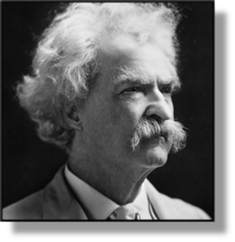 xxxxxAs we have seen, it was in 1876 (Vb) that the American novelist Mark Twain wrote his famous book Tom Sawyer, a nostalgic tale looking back at his idyllic boyhood at Hannibal on the Mississippi River. By this time he had gained fame not only as the author of a number of highly readable adventure and travel books, but also as a popular public speaker. His adventure tales were largely autobiographical, some inspired by the four years he spent working as a steamboat pilot on the Mississippi, and his travelogues were based on his travels in the American West, the Mediterranean, the Holy Land and Europe. By 1880 these works -
xxxxxAs we have seen, it was in 1876 (Vb) that the American novelist Mark Twain wrote his famous book Tom Sawyer, a nostalgic tale looking back at his idyllic boyhood at Hannibal on the Mississippi River. By this time he had gained fame not only as the author of a number of highly readable adventure and travel books, but also as a popular public speaker. His adventure tales were largely autobiographical, some inspired by the four years he spent working as a steamboat pilot on the Mississippi, and his travelogues were based on his travels in the American West, the Mediterranean, the Holy Land and Europe. By 1880 these works -
xxxxxIn 1882 Twain produced his first historical novel, The Prince and the Pauper, a fantasy tale set in Tudor England in which the young English King, Edward VI, changes places with a beggar boy. It was written as a children’s story, but, as might be expected, it included a subtle attack upon the institution of monarchy. His Life on the Mississippi, a second account of his years spent as a river pilot, was published in 1883, and then the following year he completed The Adventures of Huckleberry Finn, his famous sequel to Tom Sawyer. Published in America in February 1885, this work became known as the first all-
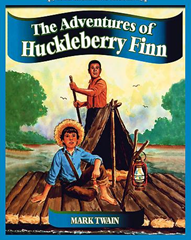

xxxxxThe story teller is Huck, a young lad who runs away from his father, the village drunkard, and, together with a runaway slave named Jim, makes a long and eventful journey down the Mississippi on a raft. Apart from memorable descriptions of the river and the changing scenery it passes through, the novel is outstanding for its shrewd and often comic observations of the people they meet, taken from all walks of life and recorded in the humour, slang and dialects of the region. The character of Huck is brilliantly drawn, and the novel contains a number of serious themes, including the universal quest for freedom, racial prejudice, and man’s inhumanity to man.
xxxxxIn 1889 Twain turned again to history, producing his satire A Yankee at the Court of King Arthur. This ingenious transplant in which Hank Morgan, a down-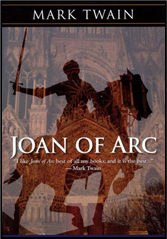 to lose money. Twain moved to Europe
to lose money. Twain moved to Europe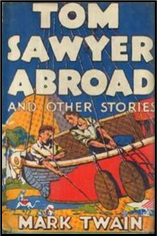 in 1891, where it was cheaper to live, but three years later was forced to declare bankruptcy. Now penniless, Twain took up the task of paying off his debts and, to his credit, he managed to do so. Over the next two years he produced four works: The Tragedy of Pudd’nhead Wilson, Tom Sawyer Abroad, Personal Recollections of Joan Arc and Tom Sawyer, Detective. The money from these, together with the income from a world lecture tour in 1895 (later described in his work Following the Equator in 1897) eventually paid off his debts.
in 1891, where it was cheaper to live, but three years later was forced to declare bankruptcy. Now penniless, Twain took up the task of paying off his debts and, to his credit, he managed to do so. Over the next two years he produced four works: The Tragedy of Pudd’nhead Wilson, Tom Sawyer Abroad, Personal Recollections of Joan Arc and Tom Sawyer, Detective. The money from these, together with the income from a world lecture tour in 1895 (later described in his work Following the Equator in 1897) eventually paid off his debts.
xxxxxIn 1900, having become solvent, Twain returned home to a hero’s welcome. He and his family settled in New York City, where he was much in demand as a public speaker. He spoke openly and forthrightly on both national and international affairs, denouncing in particular the brutal regime in the Congo Free State at this time, and imperialism in general. But these later years were not without sadness. His daughter Susy had died in 1896, and in 1904 his wife Livy, who had supported him throughout his career, died in Florence, where they had moved to benefit from the warmer climate. Not surprisingly his later works were more serious in subject matter and somewhat pessimistic in tone. They included The Man That Corrupted Hadleyburg, What is Man?, and The Mysterious Stranger. In 1906, now back in New York City, he began to dictate his autobiography, but it remained unfinished when he died of a heart attack in April 1910.
xxxxxAs a writer Twain had a remarkable command of the English language, and his realistic use of the vernacular, his knowledge of the local people, his descriptive powers, and his inimitable style -
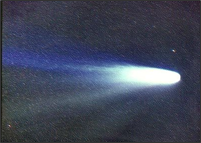
xxxxxIncidentally, Twain was born during the passage of Halley’s comet in 1835, and in 1909 he predicted that the Almighty, having allowed two “unaccountable freaks”” to come in, would insist that they went out together. They did! ……
xxxxx…… Twain was an admirer of Helen Keller, the remarkable girl who became deaf and blind at the age of eighteen months. He met her in the winter of 1894 in New York, together with Anne Sullivan, the woman who taught her to speak and write. He is credited with calling Sullivan “a miracle worker”, a title that was used by the American playwright William Gibson when he produced his television play about Sullivan in the 1950s. It was later adapted for the theatre and the cinema. ……
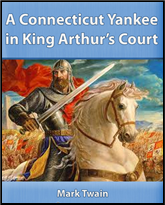
xxxxx…… His novel A Yankee at the Court of King Arthur, an attack upon political and social injustice in contemporary society, also contained a veiled criticism of Sir Walter Scott. He claimed that the Scottish writer’s novels, set in the Middle Ages and full of romantic ideas of chivalry and battle in the name of honour, played a part in the decision of the southern states to take up arms against the north in the American Civil War. But Scott was not alone. The writings of the British authors George Eliot, Jane Austen and Robert Louis Stevenson were criticised for what he considered to be a lack of quality. ……
xxxxx…… Today Twain is also famous for his amusing quotes. Here are a few of the many: Don’t go around saying the world owes you a living. The world owes you nothing, it was here first. …… Get your facts first and then you can distort them as much as you please …… Honesty is the best policy when there is money in it …… A cauliflower is nothing but a cabbage with a college education …… Be careful 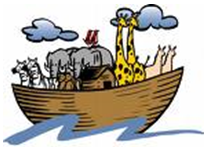 when reading health books, you might die of a misprint …… It is better to deserve honours and not have them than to have them and not deserve them …… It is better to keep your mouth closed and let people think you are a fool than to open it and remove all doubt …… Often it does seem a pity that Noah and his party did not miss the boat …… Part of the secret of success in life is to eat what you like and let the food fight it out inside. Brilliant!
when reading health books, you might die of a misprint …… It is better to deserve honours and not have them than to have them and not deserve them …… It is better to keep your mouth closed and let people think you are a fool than to open it and remove all doubt …… Often it does seem a pity that Noah and his party did not miss the boat …… Part of the secret of success in life is to eat what you like and let the food fight it out inside. Brilliant!
Vc-


